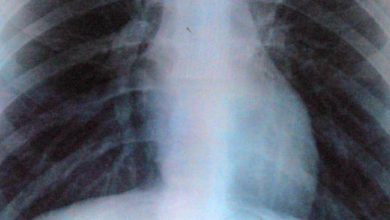It’s almost been a full (calendar) year since medical school began. I’m officially a second-year medical student — and this year’s been a momentous one. As I look back on it, here’s some of my reflections on the first year of medical school.
Fire hose: Med school really is like a firehose you’re supposed to drink from. It’s high pressure, it’s intense, it’s humanly impossible to get it all down your throat. The idea is that you gulp, swallowing big but manageable amounts and manage to just keep drinking. That’s the challenge.
Intelligence may not help you. If you’re one of those people who managed to get through physical chemistry class napping, or didn’t have to freak out about biochemistry, or immunology in college, you’re probably going to have a tough time in med school. ‘Cause no matter how smart you are, there’s no way of intuitively getting a lot of the material that you’re supposed to learn. A lot of it’s just good old-fashioned memorization. And you might as well resign yourself to having to learn to actually work — because the material may be made easier by your intelligence, but you’ll have to learn to work really hard in a disciplined manner — which for me has been terribly challenging.
Big fish, big pond: Everyone in medical school will be a copy of you. Some will be better copies of you. One of my classmates, went for a 10 mile (I think) run, before taking his MCAT. A group of them get up every morning to practise crossfit before coming to class. Others still, run half marathons, or teach part-time, or design prostheses, or are involved in every single thing at the school. Prepare to deal with a lot of people who may do things you do — and to your mind — better than you can do them. That’s the idea of moving from where you were the best (or the only one) to being a group that has an MCAT average of 512 and a GPA of 3.8.
Find your bliss: Med school’s not nice to you (scratch that – life’s not going to be nice to you). It’s important to find what you love to do, your anchor to sanity and stress release and make it a part of your routine. For me, that’s exercise. If I don’t go to work out for a couple of days, I start feeling a little down. For other classmates (who are musically gifted, unlike my tone-deaf self), it’s music. For others, it’s running, or cooking, or playing with their dogs or significant others. It doesn’t matter what it is — just find what you need and do it regularly.
Open up: Med school seems to foster this intense belief that you need to hide your feelings as weakness that your classmates will use against you. Firstly, if that’s true, you go to a terrible med school. Secondly, nine times out of ten, what you’re feeling is common to a majority of your classmates. Try to share and see — you may be surprised.
Social life: They say you can’t have a social life in medical school. They say a lot of things. They’re wrong. It’s important to have one — it’s essential to your state of mind, and it’s easy to do. Just don’t make your social life the center of your existence, and you’re good. For example, I go out for meals with friends fairly regularly. I go visit people when I can, and I go do fun things when I can.
Time is short: I started med school a somewhat different person than I am today. Who didn’t. I specifically mean in terms of a willingness to do stupid things. Let me explain. I started, not averse to, but not searching for adventure. Now, I’m setting up skydiving plans for the end of the summer. I’m hosting a Thanksgiving dinner at my house (it’s adventurous because I’ve never made a roasted turkey), I’m trying to make international trips when I can, to see the world when I can.
Live with someone: I’m someone who needs a degree of human contact from time to time. That’s called being a human being. Some people are capable of managing without any for a week at a time. Hats off to them — I can’t do that. So, I suggest living with someone. You can choose someone in med school or not. Pros are that they’re not going to throw a party the night before the anatomy final, unless they’re really fun. They’re going to get your stress, and you can help each other out. Cons are, they’re in med school. You need friends from outside of med school. I live with a classmate, and it’s great, but in that situation, find people not in medicine you can connect with.
Be better: Every day of your life, you should be better than the day before. It sounds exhausting. But it’s important. So, this summer, I’m learning to cook a few more dishes than I have in the past, as well as continuing to try to get into shape. Find what you’re weak at, or want to be better at, and go.
Don’t get doughy: I say this with the conviction of being a recovering Pillsbury Dough Boy. I started college, and over the course of college, put on 60 pounds. The first year of med school I lost 20 of those. A lot of my classmates gained instead. Med school’s stressful, and we all like to stress eat. So, try to exercise, stock up on healthy food, don’t eat at every pizza thing the school does.
Prepare to be poor: I’m going to graduate medical school $250,000 or more in debt. Accept that, and chant it to yourself. It’s not meant to scare you, and you’re meant to push it to the back of your mind. It makes failing out of med school an expensive proposition but they actively work to prevent that. Still, that leads me to…
…but don’t live like a pauper: Since you’re going to be $250,000 in debt, at least live a little bit. Don’t subsist on Ramen noodles and water, and don’t live in a cardboard box. But, at the same time, no need to mistake yourself for a Rockefeller. Moderation in all things, as Petronius said. Still, sometimes a nice dinner at a nice restaurant, with a good bottle of wine can make a week. Just saying.
Sarab Sodhi is a fourth year medical student and masters in urban bioethics candidate at Temple University School of Medicine.
Reposted with permission from in-Training.
in-Training is the online magazine for medical students. It is the agora of the medical student community, the intellectual center for news, commentary, and the free expression of the medical student voice. All articles on in-Training are contributed by medical students around the world and are edited by its staff of volunteer medical students. Follow us on Facebook, Twitter and Tumblr, or email us to get involved.




